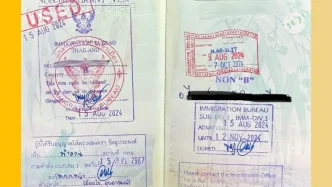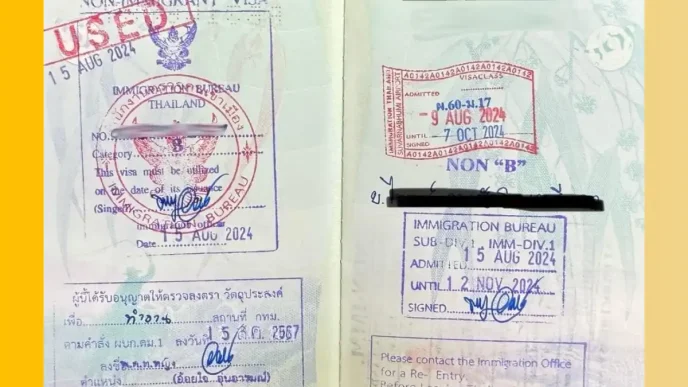In Vietnam, a disturbing new form of cybercrime known as “virtual kidnapping” is on the rise, preying on students and young people living away from home. Criminals impersonate law enforcement officials, accuse victims of fictitious crimes, and coerce them into isolation while extorting hefty sums from their families. Authorities in Hà Nội, Ho Chi Minh City, and Đắk Lắk have reported a spate of such cases in recent weeks, with police intervening to rescue multiple victims between August 2 and 5, 2025.
A Sophisticated Deception
The scam typically begins with a phone call or message from someone posing as a police officer or prosecutor. Victims, often university students or teenagers, are told they are implicated in serious crimes like money laundering. Under intense psychological pressure, they are instructed to isolate themselves—often in a hotel room—and to contact their families with distressing messages or ransom demands. Meanwhile, scammers use stolen personal information and photos, gleaned from social media platforms like Facebook or Zalo, to create fake accounts and manipulate families into believing their loved one is in grave danger.
In one case reported on July 27, 2025, in Hà Nội’s Ba Đình Ward, a father received a message demanding VNĐ250 million (~US$9,500) for the release of his university-age son, who he believed had been kidnapped. Local police, working with Hanoi’s Criminal Police Department, swiftly located the student in a nearby hotel. The young man revealed he had been contacted by an alleged investigator who accused him of involvement in a money laundering scheme and pressured him to install a Zoom-based app for an interrogation. Fearing legal consequences, he complied and sent a distress message to his parents.
Just days earlier, in Việt Hưng Ward of the same city, a 16-year-old was manipulated into staging his own kidnapping, demanding VNĐ300 million (~US$11,400) from his family. Police found him alone in a hotel room, unharmed but shaken by the ordeal. These incidents highlight a chilling pattern: scammers exploit the vulnerability of young people, particularly those living away from familial support, by leveraging fear and urgency to bypass rational scrutiny.
Multiple Rescues Amid Growing Concern
Between August 2 and 5, 2025, Vietnamese authorities resolved at least five virtual kidnapping cases across major urban centers and rural provinces. In Ho Chi Minh City, an 18-year-old student was lured into a hotel room on August 2 and instructed to ask his mother for VNĐ600 million (~US$22,800) under the guise of needing financial proof for a study abroad application. Police tracked and rescued him that same night. On the same day, a third-year student vanished from her dormitory in the city, with scammers demanding VNĐ600 million from her family. When authorities located her in a hotel, she had already transferred VNĐ129 million (~US$4,900) to the perpetrators.
Perhaps most striking was the case of a high school student from Ho Chi Minh City who, on August 5, was lured 350 kilometers away to a motel in Đắk Lắk Province. After being manipulated through phone calls and Zoom interactions, he transferred nearly VNĐ80 million (~US$3,000) to the scammers. Police rescued him early the next morning, underscoring the lengths to which criminals will go to isolate their targets.
Many victims later admitted they were aware of such scams but still fell prey due to the intense fear and isolation tactics employed. The emotional manipulation—messages like “Mom, please help!” or “Are you online, Mom?”—is designed to provoke immediate, unthinking responses from family members, often leading to significant financial losses before the deception is uncovered.
Underlying Social Vulnerabilities
Beyond the mechanics of the crime lies a deeper societal issue: the growing disconnect between young people and their families, exacerbated by the pervasive influence of social media. Journalist Hoàng Anh Tú, formerly with a prominent Vietnamese student publication, points to alarming gaps in family communication as a contributing factor. He argues that teenagers often find it easier to confide in online strangers, where they feel heard without judgment, than to open up to parents burdened by busy schedules or a lack of understanding of adolescent psychology.
“Young people are often more willing to confide in strangers online, where they feel heard and free from judgment. Meanwhile, within their own families, parents … may unintentionally create invisible barriers” Tú observed. He advocates for a shift in family dynamics, urging parents to move away from authoritarian preaching and instead truly walk alongside their children. Simple gestures, such as asking about their online habits or the content they consume, can foster trust and open dialogue.
Tú also calls for systemic changes in education to combat digital vulnerabilities. He suggests integrating practical digital skills into school curricula, teaching students how to identify online threats. “It’s not enough to just teach math, physics, chemistry, and then tell students ‘Figure out social media on your own’” he said. Lessons on recognizing scam messages, online bullying, or grooming tactics could empower young people to navigate the digital world more safely.
The Role of Trust and Awareness
Building emotional resilience and trust within families is seen as a critical defense against cybercrime. Tú advises parents to engage with their children’s online lives not through surveillance, but through genuine curiosity and support. Watching the same content, commenting on it, and following along can bridge generational divides and create a safe space for children to share their concerns. “Parents, don’t rush. Don’t lose your temper at every little thing. Be calm, because there’s still plenty of time to be present with your children” he emphasized.
Authorities, meanwhile, are stepping up efforts to raise public awareness about virtual kidnappings. Police in Vietnam’s major cities have issued warnings and are encouraging families to verify any urgent financial requests through direct communication with their loved ones. The rapid response to recent cases demonstrates a commitment to tackling this emerging threat, but the psychological toll on victims and their families remains a significant concern.
A Call for Broader Solutions
The rise of virtual kidnapping scams in Vietnam reflects a broader global trend of cybercriminals exploiting technology to manipulate human emotions. As social media continues to dominate the lives of young people, the risks of such scams are likely to grow unless addressed through a combination of education, family engagement, and law enforcement action. For now, the swift interventions by Vietnamese police offer a glimmer of hope, but the underlying vulnerabilities—both technological and emotional—demand urgent attention.
As these scams evolve in sophistication, the question remains: how can society better equip its youth to navigate an increasingly complex digital landscape? The answer may lie in fostering not just awareness, but genuine connection in an era of disconnection.
















